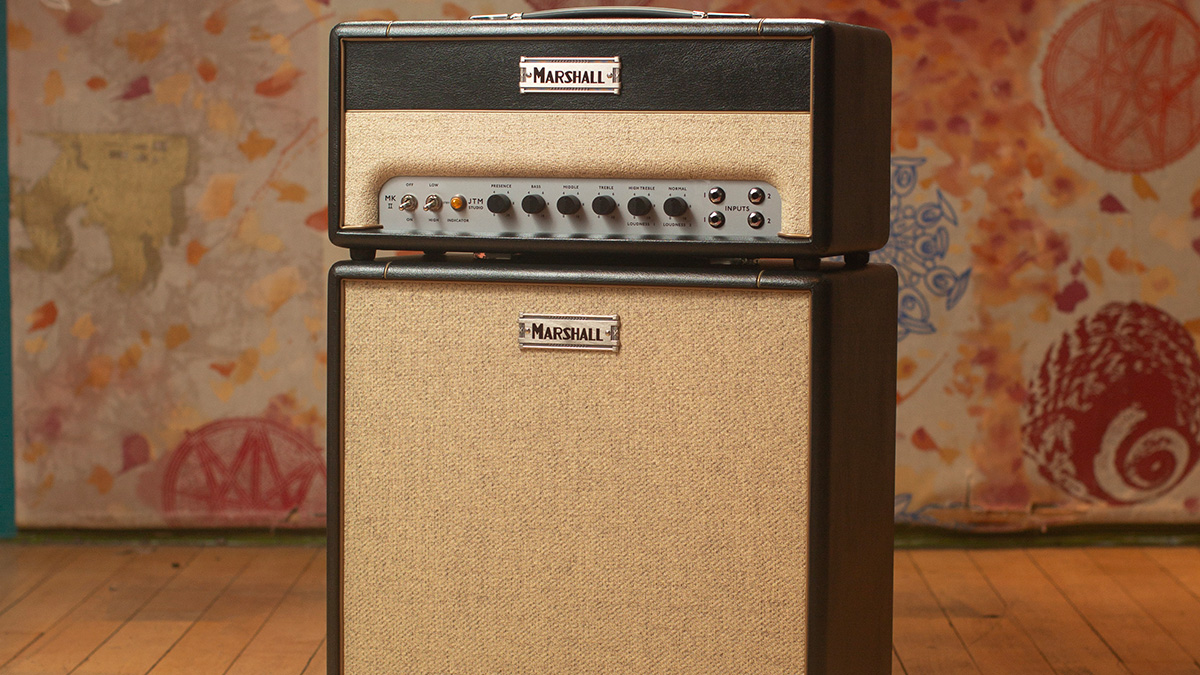
Join us for our traditional look back at the news and features that floated your boat this year. This story was originally published in November.
Best of 2023: It was the biggest guitar amp story of the year. After over 60 years of family ownership, Marshall Amplification had been sold to the Swedish speaker company Zound Industries, with both brands to be trading henceforth as the Marshall Group.
The mood music around the takeover deal was all positive. The family would command a 24 per cent share in the Marshall Group, and would be the largest shareholder. Just a few months later, Marshall debuted the Studio JTM, the smart, retro-styled 20-watt tube amp collection its first major amp release since the deal was made.
There still remained a degree of uncertainty as to how much of the company’s focus would be trained on designing new products for guitarists, or whether the Marshall consumer line of bluetooth speakers and headphones would be prioritised.
But a recent interview with The Times, Jeremy De Maillard, chief executive of the Marshall Group, indicated that company did not just want to to grow the amp side of the business but needed to in order to make gains across the board.
“A lot of times, these acquisitions [involve] cost-cutting. Here, it’s completely complementary, there’s almost no overlap and, where there is, it’s something we need to grow,” De Maillard said. “Manufacturing is the heartbeat of the company. When you walk through [Bletchley], you see people who have been here for 35 years. The craftsmanship is so nice and so powerful. We need to do more here, to enhance the legacy.”
So far the signs are good on the legacy front. Not only is the Studio JTM a faithful take on a iconic vintage amp, it was released just in time to mark the late Jim Marshall’s 100th birthday, demonstrating that the new ownership remained aware of the landmarks in Marshall history, and a sign that the heritage of the brand would be preserved.
Marshall’s budget amp lines continue to be made in Vietnam. According to The Times, Marshall’s UK manufacturing headquarters at Bletchley employs 200. If De Maillard is talking about prioritising manufacturing, and adding to those numbers, it would be reasonable to assume that we can expect more new products.
There are more amps in the Marshall catalogue that could get the Studio treatment, scaled down, made more compact and updated with modern features such as effects loops and speaker emulated DI outputs.
We are yet to see Marshall fully commit to digital. It is not outwith the realms of possibility that they release an amp modeller, building upon the modelling tech deployed across the Marshall Code series.
Perhaps we will see these products sooner rather than later. De Maillard sounded a bullish note on growing the Marshall business to match its brand recognition, and said it was ready to “overinvest” in the Marshall brand image in its effort to increase revenues and market share.
“We are in a $100 billion industry,” De Maillard said. “We have less than 1 per cent and we are Marshall. We can fairly quickly become a $3 billion company and that will only be 3 per cent. We are one of the very few global iconic brands that is widely known and attached to a certain aspect of culture. It sounds ambitious, but with the brand that we have, I have no concern about us becoming a multibillion-dollar company.”







